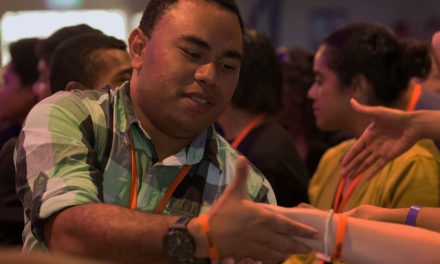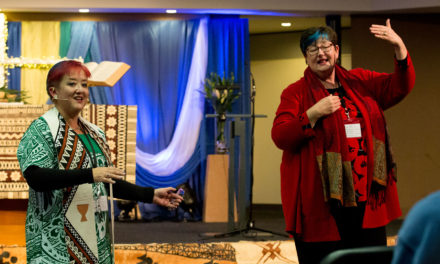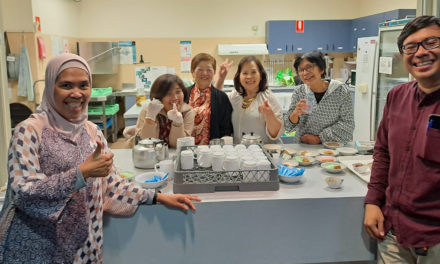Among many things, being an intercultural Church means a church with “mutually respectful diversity and full and equitable participation of indigenous (first peoples), and second peoples (the Anglo ethnic majority and other ethnic minorities) in the total life, mission and practices of the whole Church”.
Then Uniting Church values diversity. The reality is that even though we are diverse, it is the experience of the minority cultures that the Uniting Church in Australia is still predominantly Anglo Celtic and Western. Which means that the Uniting Church has a dominant culture. The diversity that we are, is not often reflected in our being and doing things. Our worship, our ordering, the decision making processes are predominantly western. The minority cultures feel their voices are not heard, their experiences not valued, their cultural needs are not understood and the spirituality they bring is not being recognised and shared.
While a significant number of members from minority cultures have adapted to the Anglo Celtic ways of doing things there are many who have formed their own cultural communities to worship and order their lives. The gospel takes shape within a culture and is expressed through the culture. The culture gives shape to the piety that evolves within that cultural community. It is that expression that gives meaning.
The UCA has been welcoming of diverse cultures. But that alone is inadequate. Many of these cultures are in silos even within the Church. Although they have found a place within the Church, that place is very limited and in most situations that is only a physical space. The spirit and culture they bring are not evident in the ethos of the UCA. There is not an active engagement with the diversity of cultures and the faith practices and piety they bring.
We all need to advocate and work towards an intercultural Church, as God’s loving community. The call is to all people of God to make it a reality. In our church, we want people from all different cultures to listen to each other and be heard. We want everyone to participate fully. We want our leaders to be as diverse as our population and membership. We don’t want one dominant culture to decide how we do things. We need to have a process of consultation where diverse voices can come together and find meaningful ways to build community and be the Church.
Here are some resources:
Defining Intercultural – United Church of Canada (310kb PDF)
Becoming an Intercultural Congregation – United Church of Canada (276 kb PDF)
On Being Intercultural – Dev Anandarajan (116 kb PDF)
Dev Anandarajan
Intercultural Leadership Development Coordinator
eLM




